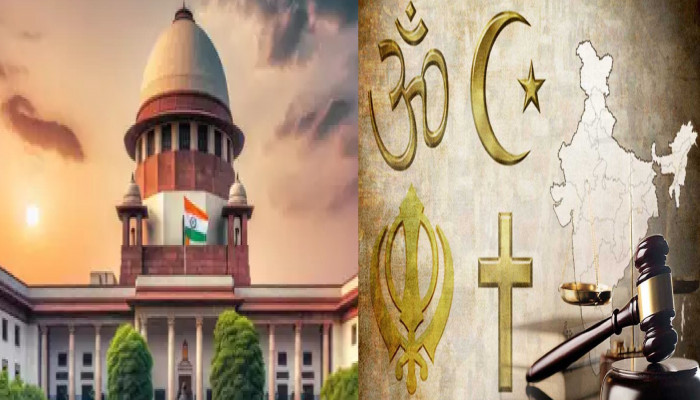'Fraud on the constitution': SC backs Madras HC ruling on conversion for reservation benefits
- In Reports
- 06:08 PM, Nov 27, 2024
- Myind Staff
The Supreme Court has stated that changing one's religion just to get reservation benefits, without genuinely believing in that religion, is considered a "fraud on the Constitution." The decision was made by Justices Pankaj Mithal and R. Mahadevan on Tuesday. The court supported a previous ruling by the Madras High Court, which had denied a scheduled caste (SC) certificate to a woman who converted to Christianity but later claimed to be Hindu in order to take advantage of reservation benefits for a job.
C Selvarani, whose father was Hindu and mother was Christian, was baptised as a Christian shortly after birth. In 2015, she applied for an upper-division clerk position in Puducherry and sought a Scheduled Caste (SC) certificate based on her father's Valluvan caste, which is classified under SC. However, the evidence presented in court showed that she consistently practised Christianity and attended church services, which undermined her claim of identifying as a Hindu.
Justice Mahadevan noted that conversion to a religion must be motivated by its teachings and ideals in his 21-page ruling for the bench. "However, if the purpose of conversion is largely to derive the benefits of reservation but not with any actual belief in the other religion, the same cannot be permitted, as the extension of benefits of reservation to people with such ulterior motives will only defeat the social ethos of the policy of reservation," he said.
The Supreme Court stated that people who convert to Christianity lose their caste identity and must show strong evidence of reconverting to Hinduism and being accepted back by their original caste community to regain their status as Scheduled Castes (SC). In Selvarani's case, the court found no valid proof of her reconversion to Hinduism, like public statements, ceremonies, or documents.
Instead, her ongoing practice of Christianity made her claim invalid. The bench decided that it was insupportable for Selvarani to claim to be Hindu in order to obtain SC reservation advantages despite being a devout Christian. The court determined that it "would go against the very object of reservation and would amount to fraud on the Constitution" to grant her SC status, which would go against the spirit of reservation laws intended to empower marginalised people.
"One converts to a different religion when genuinely inspired by its principles. Conversion purely for reservation benefits, devoid of belief, is impermissible," the bench added. Selvarani's claim that her caste identity was only "eclipsed" during her conversion to Christianity and would automatically return upon her reversion to Hinduism was similarly rejected by the Supreme Court.
"As the factum of reconversion is disputed, there must be more than a mere claim. The conversion had not happened by any ceremony or through 'Arya Samaj'. No public declaration was effected. There is nothing on record to show that she or her family has reconverted to Hinduism and on the contrary, there is a factual finding that the appellant still professes Christianity," it said.
According to the ruling, such a resumption necessitates unambiguous and verifiable proof of reconversion, which was lacking in her case.







Comments